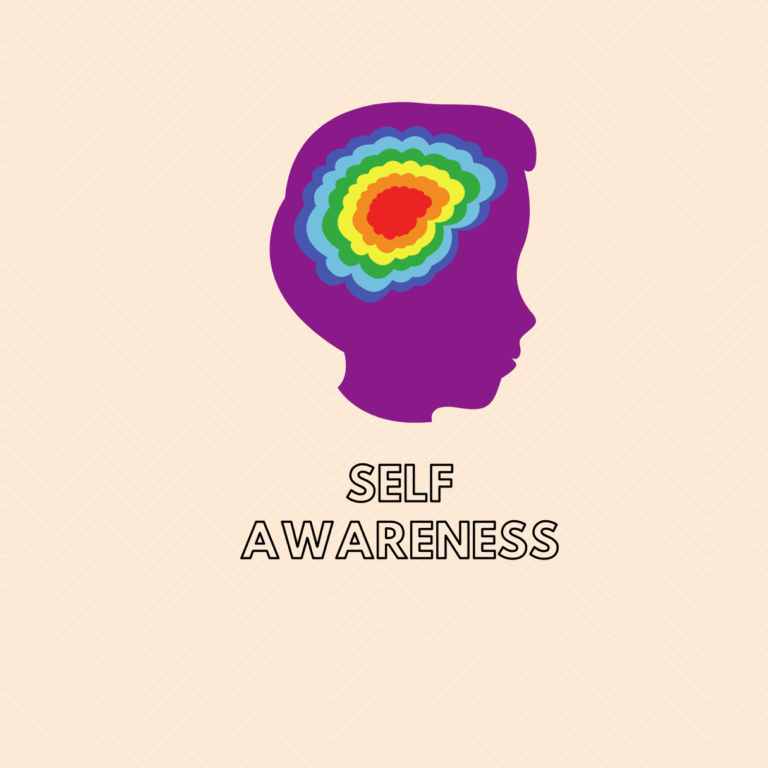The Science of Happiness: Practical Tips
Welcome to the fascinating world of happiness science! This growing field combines the study of happiness, positive psychology, and well-being strategies to uncover the secrets of leading a joyful and fulfilling life. By applying the findings of happiness research, you can learn practical tips and techniques that will help you enhance your well-being and cultivate lasting happiness.
Positive psychology, the foundation of happiness science, focuses on understanding the habits and practices of happy people. Researchers have discovered that certain habits contribute to greater well-being, including gratitude, physical activity, strong relationships, finding meaning and purpose, and prioritizing self-care.
Through continued exploration, happiness science has uncovered new discoveries that further enhance our understanding of well-being. These discoveries include the powerful impact of physical exercise on brain health and happiness, the benefits of spending time in nature, the role of probiotics in mental health, and the importance of goal-setting and finding meaning in life.
The Science of Happiness also offers practical tips for incorporating happiness practices into your daily life. By keeping a gratitude journal, performing acts of kindness, practicing mindfulness and meditation, nurturing social connections, and setting meaningful goals, you can experience greater happiness and well-being.
Not only does happiness science impact our general well-being, but it also plays a significant role in our health and relationships. Research has shown that happy individuals experience lower levels of stress, have stronger immune systems, and are less likely to develop chronic diseases. Additionally, happiness fosters positive relationships by increasing empathy and connection with others.
The application of happiness science extends beyond personal life to the professional realm. Studies have revealed that happy and satisfied employees are more productive, creative, and engaged. By embracing happiness practices in the workplace, organizations can create a thriving and successful workforce.
Recognizing the importance of happiness and well-being, educational institutions and organizations now offer happiness education programs. These programs teach individuals the science of happiness and provide practical tools and strategies to enhance well-being. Incorporating happiness education into schools and workplaces can have significant benefits for individuals and communities.
In conclusion, the science of happiness offers valuable insights and practical tips for enhancing well-being and living a more fulfilling life. By applying the principles of happiness science, you can experience increased happiness, improved physical and mental health, and stronger relationships. So, let’s dive into the world of happiness science and discover the joy it can bring to our lives!
Key Takeaways:
- Applying the findings of happiness research can enhance your well-being.
- Practicing habits of happy people, such as gratitude and physical activity, can boost happiness.
- Happiness science uncovers new discoveries that enhance our understanding of well-being.
- Practical tips, like keeping a gratitude journal and engaging in acts of kindness, can increase happiness in daily life.
- Happiness has a significant impact on both physical health and relationships.
- The science of happiness can be applied to improve workplace success and productivity.
- Happiness education programs teach the science of happiness and provide practical strategies for enhancing well-being.
Introduction to the Science of Happiness and Positive Psychology
The Science of Happiness and Positive Psychology is an exciting and rapidly growing field that delves into the secrets of happiness and well-being. It aims to understand the factors that contribute to happiness and provides practical insights on how to cultivate more happiness in our lives.
Through extensive research and studies, the science of happiness explores various aspects such as positive emotions, positive relationships, and personal strengths that play a significant role in our overall well-being.
By delving into the science behind happiness, we gain a deeper understanding of the practices and strategies that can enhance our happiness and improve our quality of life. The science of happiness invites us to adopt positive psychology techniques and happiness practices that can have a profound impact on our overall well-being.
“The happiness of your life depends upon the quality of your thoughts.” – Marcus Aurelius
Scientific findings in happiness studies have revealed that our thought patterns, habits, and social connections directly influence our level of happiness. Positive thinking, gratitude, and engaging in meaningful activities are just a few examples of happiness practices that have been proven to elevate our well-being.
To illustrate the breadth and depth of the science of happiness, let’s explore some key aspects that contribute to our well-being:
Positive Emotions:
Positive emotions play a crucial role in our overall happiness. Studies have shown that experiencing emotions such as joy, gratitude, and contentment not only boost our mood but also improve our physical health and overall life satisfaction.
Positive Relationships:
Our social connections and relationships have a significant impact on our happiness. Nurturing positive relationships, fostering a sense of belonging, and engaging in meaningful interactions with others contribute to our well-being.
Personal Strengths:
Understanding our personal strengths and leveraging them in different aspects of our lives can enhance our happiness and life satisfaction. By recognizing and utilizing our strengths, we can achieve greater success, overcome challenges, and experience a profound sense of fulfillment.
By embracing the science of happiness and incorporating happiness practices into our daily lives, we can cultivate a positive mindset, nurture strong relationships, and harness our personal strengths. These practices can pave the way for a happier, more fulfilling life.
Habits of Happy People
Happy people have certain habits and practices that contribute to their overall well-being and happiness. By adopting these habits, you can increase your own happiness and improve your overall quality of life.
- Practice Gratitude: Take time each day to reflect on the things you are grateful for. This simple practice can shift your focus towards the positive aspects of your life and increase feelings of happiness.
- Engage in Regular Physical Activity: Exercise has been proven to boost mood and increase happiness. Find an activity that you enjoy and make it a regular part of your routine.
- Nurture Relationships: Building and maintaining strong relationships with friends and family is essential for happiness. Make time to connect with loved ones and cultivate meaningful connections.
- Find Meaning and Purpose: Engage in activities that give your life a sense of meaning and purpose. This can be through volunteering, pursuing hobbies, or setting and working towards meaningful goals.
- Prioritize Self-Care: Taking care of yourself is crucial for happiness. Make time for activities that bring you joy and relaxation, such as practicing self-care routines, hobbies, or spending time in nature.
“Happiness is not something ready-made. It comes from your own actions.” – Dalai Lama
By incorporating these habits into your daily life, you can create a foundation for long-term happiness and well-being. Remember, happiness is a journey, and by consistently practicing these techniques, you can experience a more joyful and fulfilling life.
New Discoveries in the Science of Happiness
Ongoing happiness research in the field of happiness science has led to exciting new discoveries that have the potential to enhance overall well-being. These findings highlight the importance of various factors in contributing to happiness and provide valuable insights into effective well-being strategies. By incorporating these discoveries into our daily lives, we can experience greater happiness and fulfillment.
The Impact of Physical Exercise on Brain Health and Happiness
Recent studies have revealed a strong connection between physical exercise and both brain health and happiness. Regular exercise has been shown to release endorphins, which are known as “feel-good” chemicals that can uplift our mood and contribute to a sense of well-being. Additionally, exercise promotes the growth of new neurons in the brain, enhancing cognitive function and overall mental health. By incorporating physical activity into our routines, we can boost our happiness levels and improve our overall well-being.
The Benefits of Spending Time in Nature
Spending time in nature has been found to have significant positive effects on happiness and well-being. Research has shown that being in natural environments, such as parks or forests, can reduce stress levels, increase positive emotions, and improve mental health. Nature offers a respite from the hustle and bustle of daily life and provides an opportunity for relaxation and rejuvenation. By immersing ourselves in the beauty of nature, we can enhance our happiness and well-being.
The Role of Probiotics in Mental Health
A growing body of research suggests that there is a connection between gut health and mental health. Probiotics, known as “good” bacteria that support digestive health, have been found to have a positive impact on mental well-being. The gut-brain axis, a bidirectional communication system between the gut and the brain, plays a crucial role in regulating mood and emotions. By maintaining a healthy gut microbiome through the consumption of probiotics, we can support our mental health and promote greater happiness.
The Power of Goal-Setting and Finding Meaning in Life
Setting meaningful goals and finding purpose in life have been shown to have a profound impact on happiness and well-being. Research indicates that individuals who have clear goals and a strong sense of purpose tend to experience greater overall life satisfaction and happiness. By identifying our passions and values and aligning our goals with them, we can experience a sense of fulfillment and purpose. Having a clear direction in life and striving towards meaningful objectives can greatly enhance our happiness and well-being.
| New Discoveries in the Science of Happiness | Key Insights |
|---|---|
| The Impact of Physical Exercise on Brain Health and Happiness | Regular exercise boosts endorphin levels, promotes brain health, and enhances overall well-being. |
| The Benefits of Spending Time in Nature | Being in natural environments reduces stress, increases positive emotions, and improves mental health. |
| The Role of Probiotics in Mental Health | Probiotics support gut health, which in turn positively affects mental well-being and happiness. |
| The Power of Goal-Setting and Finding Meaning in Life | Setting meaningful goals and finding purpose enhances life satisfaction and overall happiness. |
Cultivating Happiness in Daily Life
The Science of Happiness offers practical tips for incorporating happiness practices into daily life. By making these practices a part of your daily routines, you can enhance your well-being and overall happiness. Here are some happiness tips and positive psychology techniques that you can try:
1. Keep a Gratitude Journal
The act of expressing gratitude has been shown to increase happiness and well-being. Take a few minutes each day to write down three things you are grateful for. This simple practice can shift your focus towards the positive aspects of your life and cultivate a sense of appreciation.
2. Engage in Acts of Kindness
Performing acts of kindness not only benefits others but also boosts your own happiness. Help a neighbor, donate to a charity, or simply offer kind words to someone in need. These acts of kindness can create positive emotions and foster a sense of connection and fulfillment.
3. Practice Mindfulness and Meditation
Take a few moments each day to practice mindfulness and meditation. Close your eyes, focus on your breath, and bring your attention to the present moment. This practice can reduce stress, increase self-awareness, and promote a greater sense of calm and contentment.
4. Nurture Social Connections
Building and maintaining strong social connections is crucial for happiness and well-being. Spend quality time with loved ones, join social groups or clubs, and make an effort to connect with others regularly. These social connections can provide support, joy, and a sense of belonging.
5. Set and Work Towards Meaningful Goals
Having goals that align with your values and bring meaning to your life can contribute to your overall happiness. Set realistic and achievable goals, break them down into smaller steps, and take consistent action towards their attainment. The progress and sense of accomplishment can bring a deep sense of fulfillment and happiness.
“Happiness is not something ready-made. It comes from your own actions.” – Dalai Lama
By incorporating these happiness practices into your daily life, you can cultivate greater well-being and experience lasting happiness. Remember that happiness is a journey, and it requires consistent effort and practice. Start implementing these tips today, and embrace the science of happiness to live a more joyful and fulfilling life.
The Impact of Happiness on Health and Relationships
Research has shown that happiness has a significant impact on both physical and mental health. Happy individuals experience lower levels of stress, have stronger immune systems, and are less likely to develop chronic diseases. Additionally, happiness plays a key role in building and maintaining positive relationships, as happy individuals tend to be more empathetic and have stronger connections with others.
When it comes to health, studies have consistently found a strong correlation between happiness and well-being. People who report higher levels of happiness tend to have better overall health outcomes. They are more likely to engage in healthy behaviors such as regular exercise, balanced diets, and sufficient sleep. This leads to reduced risks of cardiovascular diseases, obesity, and other chronic illnesses. Furthermore, happiness has been linked to improved immune function, faster recovery from illness, and increased longevity.
But the benefits of happiness extend beyond physical health. Happy individuals also tend to experience better mental and emotional well-being. They have lower levels of stress and anxiety and are more resilient in the face of adversity. Happiness promotes positive emotions such as joy, contentment, and optimism, which contribute to better mental health and a higher quality of life.
Moreover, happiness has a profound impact on relationships. Happy individuals are more likely to form and maintain meaningful connections with others. They tend to exhibit greater empathy, kindness, and trust, which foster healthier and more satisfying relationships. Happy couples report higher relationship satisfaction, better communication, and increased relationship longevity. Additionally, friendships between happy individuals are characterized by mutual support, understanding, and shared positive experiences.
The Impact of Happiness on Health and Relationships
| Benefits of Happiness | Impact on Health | Impact on Relationships |
|---|---|---|
| Lower levels of stress | Reduced risks of chronic diseases | Stronger connections with others |
| Stronger immune system | Improved overall well-being | Greater empathy and kindness |
| Reduced risk of cardiovascular diseases | Enhanced mental and emotional well-being | Higher relationship satisfaction |
| Faster recovery from illness | Better resilience in the face of adversity | Improved communication in relationships |
| Increased longevity | Promotion of positive emotions | Development of mutual support in friendships |
Overall, prioritizing happiness in your life can have substantial benefits for both your health and relationships. By adopting well-being strategies that promote happiness, such as practicing gratitude, engaging in regular exercise, and nurturing social connections, you can improve your overall well-being and cultivate a happier and more fulfilling life.
The Science of Happiness and Professional Success
The Science of Happiness applies not only to personal well-being but also to the realm of work and professional success. Research has consistently shown that happy and satisfied employees are more productive, creative, and engaged in their work. By intentionally cultivating happiness in the workplace, organizations can create a thriving and successful workforce.
One of the key factors in promoting happiness in the workplace is fostering a positive work environment. This includes promoting open communication, encouraging collaboration and teamwork, and establishing a culture of appreciation and support. When employees feel valued and respected, they are more likely to experience happiness and job satisfaction.
Another essential element in promoting happiness in the workplace is promoting work-life balance. Encouraging employees to prioritize their physical and mental well-being by providing flexible work schedules, wellness programs, and opportunities for personal growth and development can contribute to overall happiness and success.
“Creating a positive work environment and promoting work-life balance leads to happier, more engaged employees, and ultimately, a more successful organization.”
Recognizing and appreciating employees for their hard work and contributions is also crucial in cultivating happiness and professional success. Employee recognition programs, regular feedback and praise, and opportunities for growth and advancement can all contribute to a positive and fulfilling work experience.
Benefits of Happiness in the Workplace:
- Increased employee productivity and effectiveness
- Enhanced creativity and innovation
- Improved employee engagement and job satisfaction
- Reduced employee turnover and absenteeism
- Stronger teamwork and collaboration
- Positive impact on the overall organizational culture
By incorporating positive psychology techniques and happiness practices into the workplace, organizations can create an environment that brings out the best in their employees. This not only leads to individual success but also contributes to the overall success and growth of the organization.
Investing in the happiness and well-being of employees is not just a feel-good strategy, but a smart business decision. Happy employees are more likely to stay with the organization, perform at their best, and contribute to a positive and productive work environment.
Next, we will explore the importance of happiness education and how it can benefit individuals and communities in various settings.
The Importance of Happiness Education
In recognition of the vital role that happiness and well-being play in our lives, numerous educational institutions and organizations have embraced the concept of happiness education. These specialized programs are designed to teach individuals about the science of happiness and equip them with practical tools and strategies to enhance their overall well-being. By incorporating happiness education into schools and workplaces, we can foster a happier and healthier society.
Happiness education programs focus on equipping individuals with the knowledge and skills necessary to cultivate happiness and well-being. They draw on the principles of positive psychology and offer courses, workshops, and resources that promote personal growth and fulfillment. These programs provide participants with a deeper understanding of the factors that contribute to happiness, such as mindfulness, gratitude, resilience, and positive relationships.
One of the key benefits of happiness education is its practical approach. Participants not only learn about the theory behind happiness but also gain actionable strategies that they can apply in their everyday lives. They learn how to cultivate positive emotions, manage stress, nurture healthy relationships, find meaning and purpose, and prioritize self-care. By implementing these strategies, individuals can experience a significant improvement in their overall well-being.
Moreover, happiness education programs are not limited to academic settings. Many organizations have recognized the value of promoting well-being in the workplace and have started offering happiness education courses as part of their employee development initiatives. These programs aim to create positive work environments, enhance employee engagement and productivity, and reduce stress and burnout.
Investing in happiness education has wide-ranging benefits for individuals and communities. Research has shown that individuals who have received happiness education report higher levels of life satisfaction, improved mental health, and greater resilience. These individuals are not only happier themselves but also contribute to happier and more connected communities.
Happiness education is not a one-time endeavor but a lifelong journey of growth and self-discovery. It empowers individuals to take responsibility for their own happiness and equips them with the essential tools to navigate life’s challenges with resilience and joy.
Benefits of Happiness Education
| Benefits | Description |
|---|---|
| Enhanced well-being | Happiness education equips individuals with the knowledge and strategies to enhance their overall well-being, leading to increased life satisfaction and improved mental health. |
| Positive relationships | By learning about the importance of positive relationships, individuals can cultivate deeper connections with others, leading to more fulfilling and meaningful relationships. |
| Reduced stress | Happiness education provides individuals with tools to effectively manage stress and build resilience, enabling them to navigate challenges with greater ease. |
| Improved workplace culture | Organizations that invest in happiness education create positive work environments, fostering employee well-being, engagement, and productivity. |
| Enhanced personal growth | Happiness education encourages individuals to engage in personal growth and self-reflection, leading to a greater sense of purpose and fulfillment in life. |
Happiness education is a powerful tool that can transform individuals’ lives and create positive change in society. By equipping individuals with the knowledge and skills to cultivate happiness and well-being, we can foster a happier, healthier, and more connected world.
Conclusion
The Science of Happiness offers valuable insights and practical tips for enhancing your well-being and cultivating lasting joy. By incorporating happiness practices into your daily life, you can experience increased happiness, improved physical and mental health, and stronger relationships. Embracing the science of happiness can lead to a more fulfilling and meaningful life.
Applying the principles of happiness science will help you navigate life’s ups and downs with resilience and positivity. From practicing gratitude and engaging in regular physical activity to nurturing relationships and prioritizing self-care, there are numerous strategies you can adopt to boost your overall happiness and well-being.
Remember, happiness is not a destination but a journey. It requires consistent effort and mindful choices. By actively applying the practical tips for happiness shared throughout this article, you can create a life filled with joy, contentment, and a deep sense of well-being. Start incorporating these well-being strategies today and unlock the incredible power of happiness in your life.






